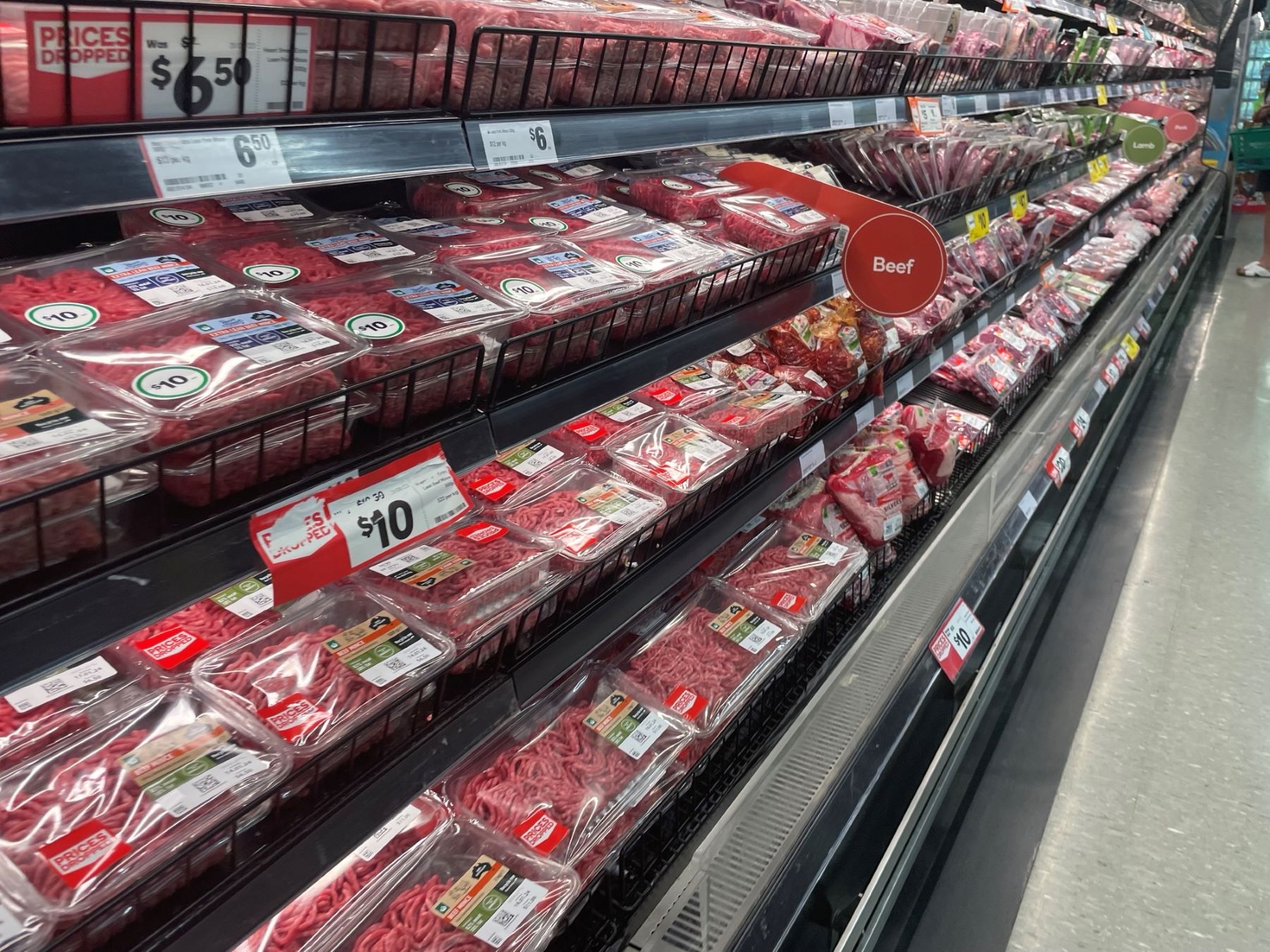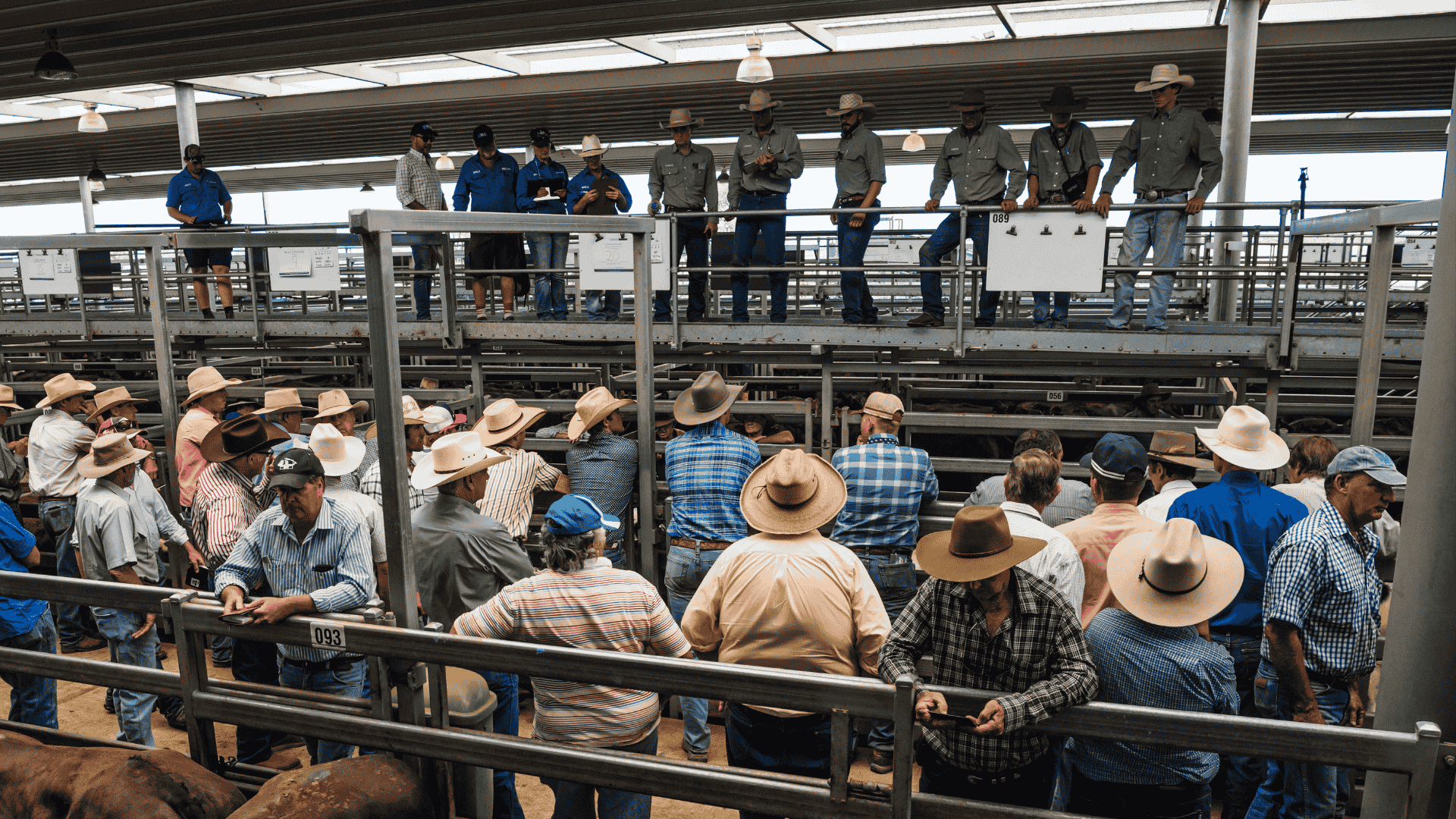What Trump's latest tariffs mean for Aussie livestock producers
Australian sheepmeat and goatmeat have been caught up in US President Donald Trump's latest tariff tantrum, but Australian beef will remain exempt.
3 min read
 Natasha Lobban
:
Aug 28, 2024
Natasha Lobban
:
Aug 28, 2024

We're introducing a weekly round-up of the news affecting the agriculture industry. Read below for updates on the key issues everyone is talking about right now.
Recent billion-dollar profit announcements by major supermarkets have drawn sharp criticism from NSW Farmers, the state’s peak farm body.
Coles reported an annual profit of $1.1 billion, while Woolworths announced a $1.7 billion profit.
NSW Farmers Vice President Rebecca Reardon described these profits as a stark reminder of the “profit push” practices by the supermarket duopoly, which, according to her, are hurting both consumers and farmers.
“The cost of food has increased by more than 14% between December 2021 and December 2023, yet farmers are still receiving prices below the cost of production,” Mrs Reardon said.
In response to the soaring profits of supermarket giants, the Leader of The Nationals, David Littleproud, this week advocated for stronger competition legislation.
The proposed legislation included a minimum infringement penalty of $2 million for supermarkets that breach the code, with fines scaling up to $10 million or more based on the severity of the violation.
Meanwhile, Woolworths has joined Aldi in committing to only selling “deforestation-free” beef, advising there will be no new obligations on farmers.
It comes as an environment organisation pushed out an anti-farming campaign claiming beef farmers were bulldozing bush – a claim condemned by the agricultural sector as lacking context and ignoring the regulations around land clearing farmers must comply with.
The Australian Bureau of Statistics (ABS) reported a 3.5% rise in the Consumer Price Index (CPI) for the 12 months leading up to July 2024, a slight decrease from 3.8% in June.
Notably, the annual inflation for food and non-alcoholic beverages climbed to 3.8% in July, up from 3.3% in the previous month. The most significant contributor to the increase was the fruit and vegetable sector.

The annual movement of meat and seafood prices lifted into positive territory at 0.2% for July after decreasing –0.2% in June and -0.6% in May.
The National Farmers’ Federation (NFF) is calling on farmers and supporters to join a rally in Canberra on September 10 to push back against what it describes as “anti-farming agendas” dictating outcomes in Canberra.
NFF President David Jochinke expressed concern over the growing influence of activist groups on government decisions, which he believes are not based on evidence.
The rally will address several key issues affecting the farming community, including the proposed ban on live sheep exports, new taxes, and water buybacks in the Murray-Darling Basin.
Mr Jochinke emphasised the need for policies informed by farmers' lived experiences and designed to grow the industry rather than diminish it.
The rally will commence at 11am on September 10, on the Federation Mall, opposite Parliament House.
Industry leader Luke Bowen was this week remembered as one of agriculture's finest leaders, as news of his death rippled across the country.
Mr Bowen was a former Chief Executive Officer of Cattle Australia, and stood down from the position in September 2023 due to health concerns.
Cattle Australia lead the tributes on social media, saying: "Luke’s contribution to our industry, regional communities and as a friend and colleague cannot be understated. He was a remarkable person and our deepest sympathies are with Tracey and Luke’s family as they work through this unimaginable loss."
The Australian Livestock Export Council (ALEC) remembered Mr Bowen as a "magnificent friend and fierce defender of our industry", particularly as leader of the Northern Territory Cattlemen’s Association during the 2011 live cattle ban to Indonesia.
"Luke was highly regarded in agricultural circles for his integrity, intelligence and leadership. He had many friends and few enemies despite the challenging issues he often dealt with," ALEC said it a statement.
Tributes for Mr Bowen appeared across social media, and testament to his impact on the industry came from across the industry, and the political spectrum.
AgForce has announced that Shane McCarthy, the current Deputy Chair and North Regional Director, will be the new AgForce President for 2024-26.
Mr McCarthy will officially take over the role at AgForce’s Annual General Meeting in November, succeeding Georgie Somerset, who has led the organisation for the past six years.
Mr McCarthy expressed his gratitude for the opportunity to lead AgForce and praised Mrs Somerset for her significant contributions. He looks forward to continuing the momentum on critical industry issues and advocating for food security in Queensland.
READ MORE: Georgie Somerset reflects on her time at AgForce
A national program designed to stop the march of fire ants is facing rising community resistance to mandatory baiting.
Australia has recently ramped up its decades-long effort to eradicate the South American super pest, which could cost the country billions each year if they escape from south east Queensland.
Signs are appearing on gates and along fence lines, proclaiming: "We do not consent to the poisoning of us, our properties, pets, livestock, wildlife and eco-systems".
Fire ants attack crops and livestock, and swarm and kill native species. Their painful stings can sometimes be fatal for humans. Biosecurity analysts told a recent Senate inquiry Australia could lose 2.8 per cent of its GDP to fire ants.
The Albanese Government has released its response to the 2023 Climate Change Authority (CCA) review of Australia’s carbon crediting scheme.
The review found that the Australian Carbon Credit Unit (ACCU) Scheme is performing well and supporting the country’s net zero transformation. The Government has agreed to most of the CCA’s recommendations, with work already underway to implement several key changes.
Minister for Climate Change and Energy Chris Bowen emphasised the Government’s commitment to ensuring the integrity of the ACCU scheme.

Australian sheepmeat and goatmeat have been caught up in US President Donald Trump's latest tariff tantrum, but Australian beef will remain exempt.
.png)
After 24 Hereford sales with Injemira, stud principal Marc Greening says the next step for the Holbrook-based seedstock operation is about...
.png)
AuctionsPlus has launched a new Trade and Finance Calculator, giving buyers clearer visibility over trading margins and finance costs before placing...